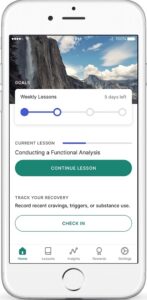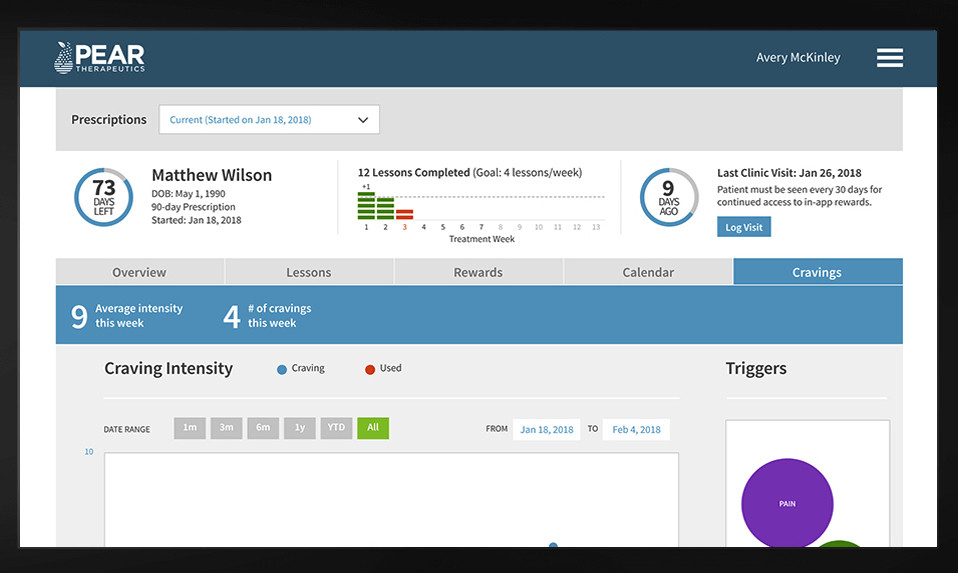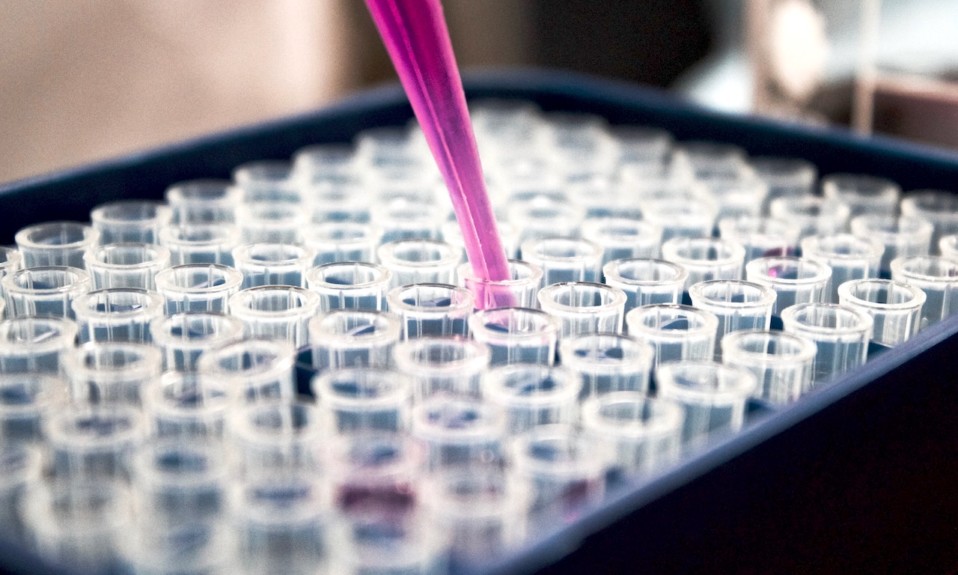Tools such as reSET and reSET-O by Pear Therapeutics are a new frontier in SUD treatment
By Jenny Diedrich
With substance use disorder (SUD) permeating all parts of society, states and municipalities are always looking for innovative treatment tools. One new method—prescription digital therapeutics (PDTs)—calls upon computer devices that patients already use every day.
PDTs are designed and tested much like traditional prescription drugs, with some even being authorized by the Food and Drug Administration (FDA). But instead of swallowing a pill or taking an injection, patients are treated via software.
It is incredible how costly SUD is at large. How can we create savings for a state, for an employer, for an integrated delivery network?”—Julia Strandberg, Pear Therapeutics
Boston-based Pear Therapeutics develops PDTs to provide patients in outpatient counseling with cognitive behavioral therapy. Julia Strandberg, chief commercial officer at Pear Therapeutics, believes PDTs can help solve two of the primary obstacles to SUD treatment: inconsistent access and too few clinicians. Only a fraction of the millions of people in the United States with SUD receive care, she says.
“It is incredible how costly SUD is at large,” says Strandberg. “How can we create savings for a state, for an employer, for an integrated delivery network? It is astounding how much we as a healthcare community are paying when we can innovate and bend that cost curve.”
reSET and reSET-O

Pear Therapeutics’ prescription digital therapeutics, reSET and reSET-O, are apps that have been authorized by the FDA. ReSET is a 90-day PDT for SUD outpatients who are 18 or older. Meanwhile, reSET-O is an 84-day PDT aimed at opioid use disorder (OUD) outpatients who are 18 or older and is used along with transmucosal buprenorphine and contingency management.
Once they’ve been given a prescription and access code, patients download reSET or reSET-O to their smartphone or other devices. Each product includes a dashboard that gives clinicians access to patient information including lessons completed, reported substance use, cravings and triggers, and in-clinic data such as drug screen results.
This information can enhance face-to-face or telehealth sessions with clinicians, says Strandberg. For example, a patient might report a craving on a specific day through the app, which the clinician then can discuss in a counseling session. “It really helps navigate and enrich care,” Strandberg says. “[Clinicians] also have the ability to understand [how the patient is] trending. Is the patient going in the right direction?”
Another Tool in the Fight Against Addiction
Strandberg says prescription digital therapeutics can extend clinicians’ reach while also creating cost savings. So far this year, the company has been awarded State Opioid Response (SOR) grants in three states: Indiana, Kentucky and Ohio. The grants provide residents in those states with access to reSET and reSET-O.
“While the [COVID-19] pandemic has rightfully been front and center in everyone’s minds, the opioid epidemic hasn’t gone away. It persists as a threat to our citizens and our communities,” Lori Criss, director of the Ohio Department of Mental Health and Addiction Services, said in a news release after the state awarded Pear Therapeutics its SOR grant. “This funding will help partners like Pear Therapeutics connect even more Ohioans to treatment and recovery services and support their use of new technology and innovation to stem the tide of addiction.”













